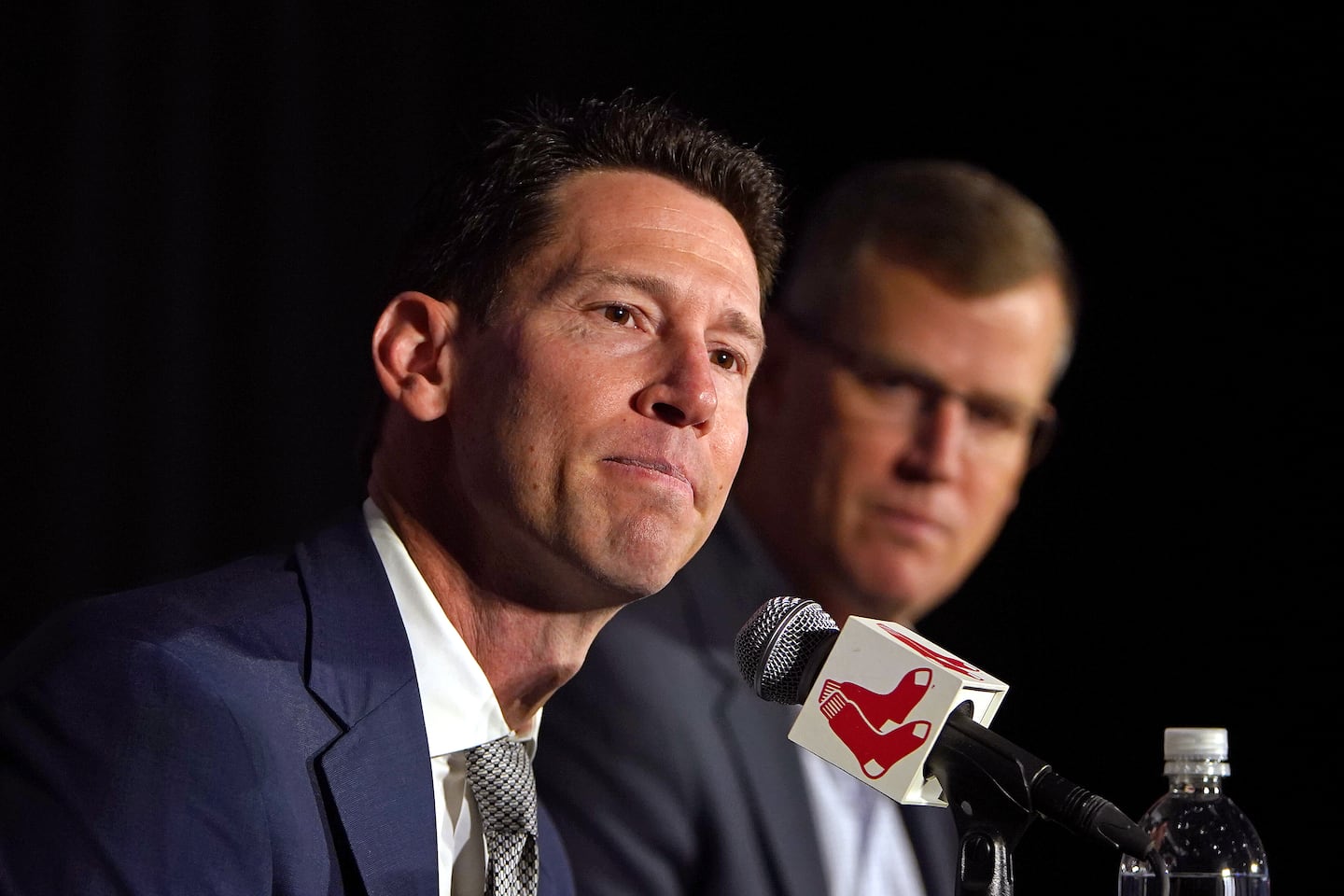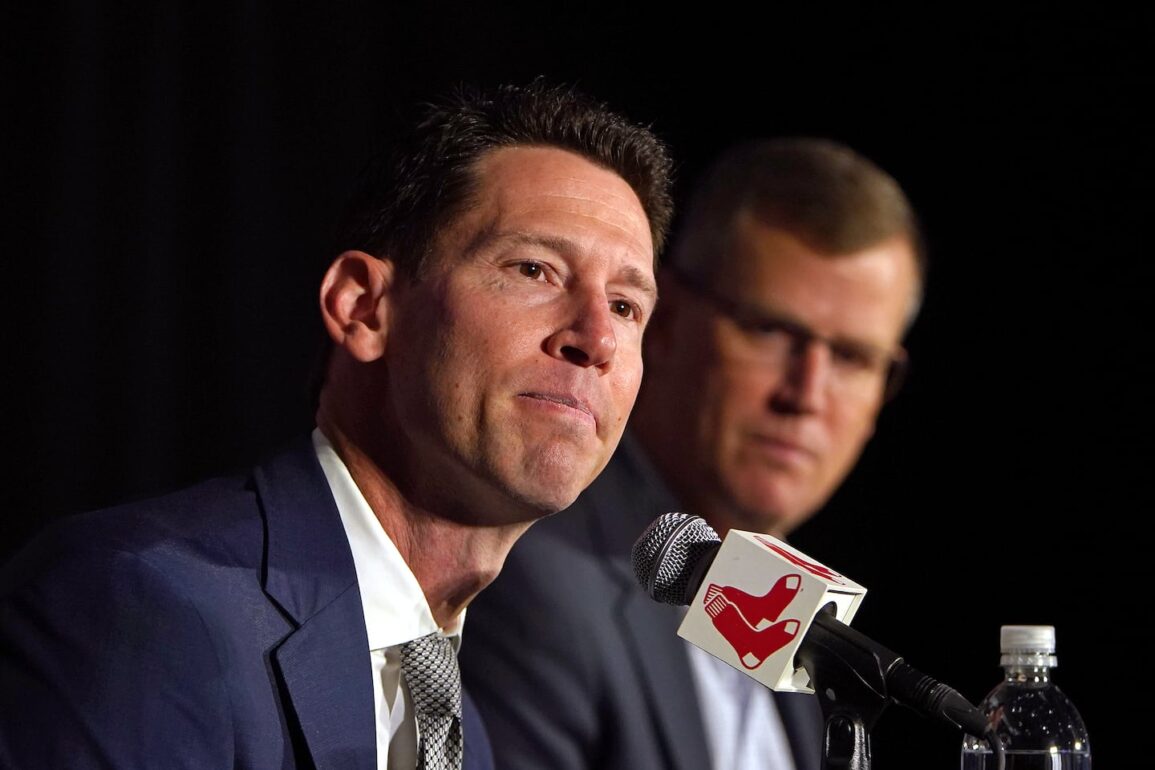
This column is from Trendlines, my business newsletter that covers the forces shaping the economy in Boston and beyond. If you’d like to receive it via email on Mondays and Thursdays, sign up here.
I’m out of my league when it comes to opining on whether the Rafael Devers trade was a win, loss, or no decision for the Red Sox.
But I do know this: Something has gone terribly awry when a highly successful business — be it Apple firing Steve Jobs, Market Basket putting its CEO on leave, or the Olde Towne Team — says it had no choice but to jettison a franchise star.
The details vary from case to case, but the break almost always involves money and pride, and is preceded by a communication breakdown.
Even successful businesses often flinch when it comes to delivering straight talk to employees on a consistent basis.
“When the owner is flying out to Kansas City, it’s too late,” said Marcus Stewart, chair of the management department at Bentley University, referring to Sox owner John Henry’s last-ditch effort to persuade Devers to take over at first base after Triston Casas’ season-ending injury last month. “It was a lack of communication.”
In Sunday’s off-field stunner, the Sox dealt Devers to the San Francisco Giants, shedding the $254 million remaining on the 11-year, $331 million contract he signed in 2023. In exchange, they got two so-so pitchers and a pair of maybe-someday prospects.
Sox brass all but admitted that they traded the slugger because he refused to make the switch to first. That followed Devers’ initial resistance to switching from third base — a position he plays poorly — to designated hitter when the Sox signed Gold Glover Alex Bregman.
Devers, they implied, wasn’t willing to take one for the team.
That was Devers’ error, said former Sox star David Ortiz.
“I think it would be easier, if they pay you that kind of money, to go, ‘[trademark Big Papi expletive] it, let’s do it,’” Ortiz, now a special assistant to Henry’s Fenway Sports Group, told Ken Rosenthal of Fox Sports. (Henry also owns the Globe.)
“I’m not saying the Red Sox did everything right. But you have to give the club the benefit of the doubt,” Ortiz said. “They’re not trying to make the organization look bad. They’re trying to make good moves that sometimes they don’t have the opportunity to explain.”
Still, management seems to have missed in laying out their expectations for Devers once Bregman joined the team. He probably wouldn’t be wearing a Giants uniform if they had. Even if you don’t know the difference between a cut fastball and a slider, there is a valuable business lesson here.
Talk it out
“Clearly, something broke down in the communication between management and player,” said Shira Springer, a senior lecturer at the MIT Sloan School of Management.
“Having covered Alex Cora, he has always struck me as someone who was very good about building relationships,” said Springer, a former sports writer for the Globe and other outlets. Cora, the Red Sox manager, is well regarded in the clubhouse.
“But then you wonder . . . How come he couldn’t get Devers to switch from third to first. And to me, that’s a pretty big kind of sign looking from the outside.”
What happened higher up in the organization?
We haven’t gotten an inside account — yet. Chief baseball officer Craig Breslow, a former Sox pitcher and Yale grad, was considered one of the game’s best minds when he was hired in 2023.
But his communication skills have reportedly come up short.
“Multiple sources within the organization describe a front office losing cohesion,” Joon Lee of Yahoo Sports wrote on Monday. “The collaborative spirit that once defined Red Sox baseball operations has frayed.”
Get on the same page
Indeed, there’s speculation that Cora and Breslow disagree on priorities. Cora is said to be focused on winning this season, while Breslow and the rest of the front office are planning for the longer term.
The lack of “alignment” is a tell-tale sign of a management in trouble.
“I think that’s the case in terms of Devers and maybe the rest of the club not getting a consistent message because the Red Sox are playing this game where they try to tell the public, ‘We’re the same old Red Sox and all we wanna do is win,’ but then you try to operate a different way,” said Bentley’s Stewart.
Red Sox fans — the customers — are justifiably confused about whether the team wants to make it to the playoffs this season.
Big Papi sums it up
“I’m not saying the Red Sox are the best at making the best decisions,” Ortiz said. “But it’s not like they’re the worst, either. . . . I’m not going to tell you they’re perfect. I went through it. Everything has a way of being resolved. But when things fall apart, this is what happens.”
What we had here was a failure to communicate. It’s not a season-ending mistake by any stretch. But it was a big one. And unless something changes, it won’t be the last.
Larry Edelman can be reached at larry.edelman@globe.com.
This post was originally published on this site be sure to check out more of their content.







